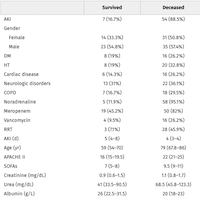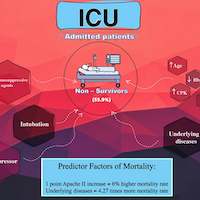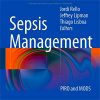Abnormalities in the Host Immune Response During Hospitalization for Sepsis
jamanetwork.com
In this cohort study of 483 patients who survived hospitalization with sepsis at 12 US hospitals, 25.8% had elevated high-sensitivity C-reactive protein levels (a marker of inflammation) at 3 months, 30.2% at 6 months, and 25.6% at 12 months and 46.4% had elevated soluble programmed death ligand 1 levels (a marker of immunosuppression) at 3 months, 44.9% at 6 months, and 49.4% at 12 months.
Two common phenotypes were identified based on these markers, and patients with hyperinflammation and immunosuppression had a higher risk of readmission or death.
Persistent elevation of inflammation and immunosuppression markers is common up to a year in patients who survive hospitalization for sepsis and may be associated with poor long-term outcomes.
This prospective, multicenter cohort study enrolled and followed up for 1 year adults who survived a hospitalization for sepsis from January 10, 2012, to May 25, 2017, at 12 US hospitals.
Persistent elevation of inflammation and immunosuppression biomarkers occurred in two-thirds of patients who survived a hospitalization for sepsis and was associated with worse long-term outcomes.















